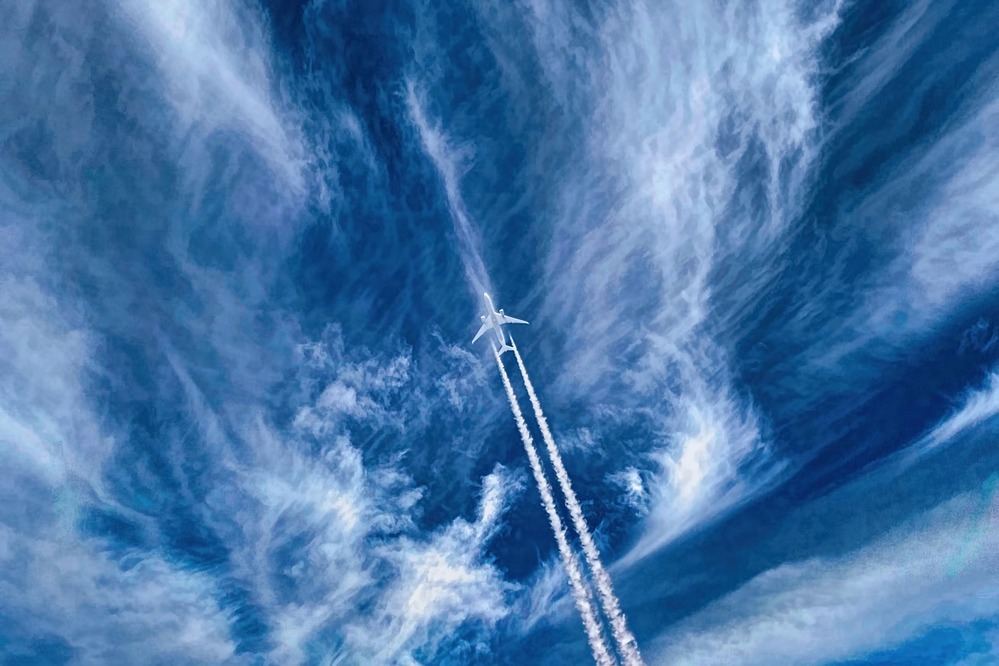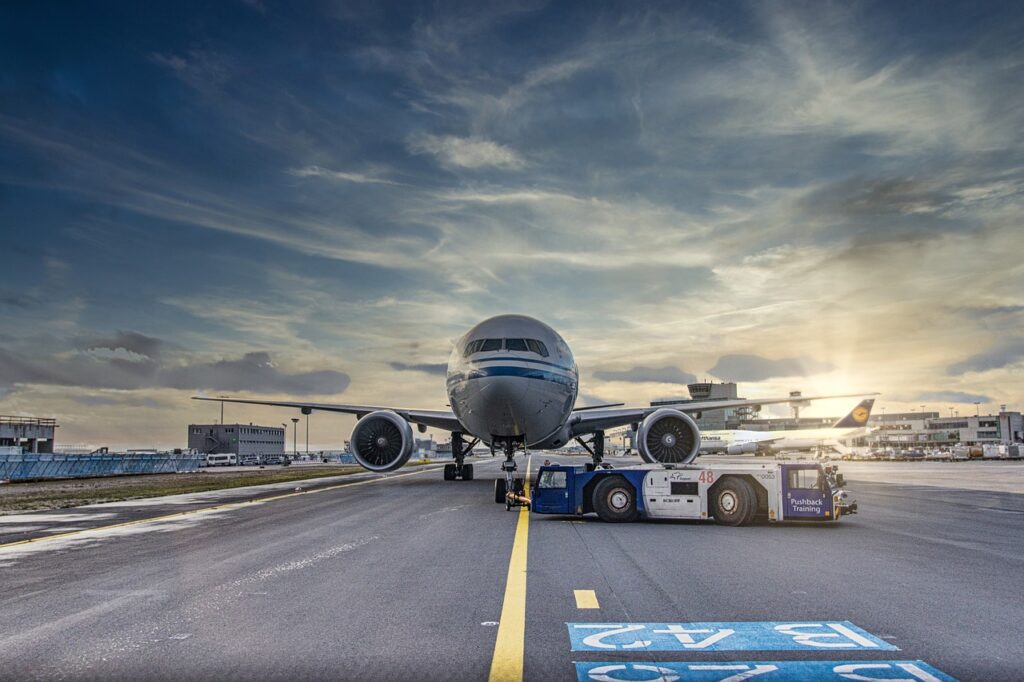Flight delays are one of the most frustrating and confusing aspects of air travel, leaving many travelers wondering, “Why do flights get delayed?” While the question might seem straightforward, the answer lies in a complex web of safety, logistics, and external factors that airlines must navigate daily. From severe weather conditions that make flying too risky to unexpected mechanical or technical issues, flight delays aren’t just inconveniences — they’re vital measures to keep passengers safe. In this guide, we’ll uncover the most common reasons for flight delays and provide clarity on why your travel plans might get derailed. Understanding these reasons not only helps ease the frustration of waiting at the airport, but also empowers you to plan ahead and protect your travel experience.

10 Common Reasons for Flight Delays
Flight delays are a common occurrence – and an unfortunate part of the travel experience – and many passengers have concerns about why planes get delayed. Flight delays can stem from minor inconveniences to major safety concerns, complicating operations. Here are some of the most common reasons behind these delays.
Quick Overview of Flight Delay Causes
🌪️ Unsafe Weather Conditions
⚠️ Security Issues
🐦 Bird Strikes
🛠️ Technical or Mechanical Issues
⛽ Aircraft Preparations
✋ Employee Strikes
🧳 Waiting for Connecting Passengers or Luggage
👩✈️ Not Enough Staff
🔄 Knock-On Effect
🙅 Unruly Passengers
Unsafe Weather Conditions
Unsafe weather conditions top the list of external factors contributing to flight delays. What causes flight delays is how weather impacts flight safety and efficiency. Airports and airlines – with guidance from national regulatory authorities – follow protocols for handling extreme weather events. The specific standards depend on the location, but the end goal is always passenger safety.
Severe weather, from tornadoes and blizzards to hurricanes, accounts for a large percentage of delays. However, such extreme weather accounts for only about 6% of all flight delays. For travelers facing such delays, understanding your rights regarding flight delay compensation can help alleviate the frustration of unexpected disruptions.
TIP: If bad weather is forecasted, sign up for your airline’s real-time notifications to stay updated on delays or changes in departure times.
Security Issues
Aviation security matters above all else because it affects flight operations. Every airport globally follows advanced security methods designed to protect passengers against dangers. The public may not see these essential security processes but must understand their importance in maintaining air travel safety.
Security protocols require secrecy to work but can result in waiting times for travellers. Security teams addressing potential threats may lead to additional processing time and flight delays.
Bird Strikes
Another common reason flights are delayed involves nature itself: bird strikes. During crucial parts of flight operations, such as takeoff and landing, aircraft can experience bird strikes. These incidents often cause minimal damage but pose real safety risks, leading to flight delays or emergency landings in rare cases.
Flight delays become unavoidable when aircraft undergo inspections to assess potential damage from bird strikes. Airlines and aviation authorities treat these events seriously, as they remain a persistent challenge to maintaining flight schedules.
Technical or Mechanical Issue
When it comes to reasons for delayed flights, technical or mechanical problems are some of the most serious. In the aviation world, safety comes first, and all aircraft are required to undergo a pre-flight checkup before starting the journey. Engineers carefully inspect the aircraft for any issues that could affect safety. If something is wrong, even if it’s trivial, it can result in not only a delay of the flight but, more seriously, a cancellation. This overly cautious approach keeps the highest safety standards in place, but it can also cause delays. Passengers’ safety always takes precedence, highlighting a fundamental reason why planes get delayed.
Aircraft Preparations

When an aircraft touches the ground, it needs to be prepared for its next take-off. When an aircraft lands, the process of turnaround – making it ready for its next flight – starts immediately. This includes refueling, cleaning, loading cargo and luggage, and tending to any maintenance or service issues that came up during the previous flight. Even small delays to these steps can build up over time, impacting the time an aircraft is due to leave. This process takes time, and one of the reasons why flights are always delayed is the thoroughness of this process, which is, of course, paramount for safety and passenger comfort.
Employee Strikes
While employee strikes are among the many reasons for flight delays, employee strikes rank far and above others. As in other industries, airline workers, including pilots, cabin crews, and ground staff, can go on strike to draw attention to problems in their industry or to initiate negotiations with their employers about terms of employment, including wages, working hours, and other conditions of employment. These strikes can cause significant disruption to the airline’s operations, with hours-long delays on many departing flights. Although strikes aren’t something that happens every day, they can have a significant impact, causing numerous flight delays and even flight cancellations. Understanding this aspect sheds light on why flights are being delayed, emphasizing the human element in the complex ecosystem of air travel.
Waiting for Connecting Passengers or Luggage
Air travel, by necessity, involves tight logistics, with passengers and their belongings flowing from one flight to another. In certain cases, airlines may choose to hold slightly to allow connecting passengers to board or to make sure luggage gets loaded onto the aircraft. When this occurs, carriers typically won’t delay a flight for these reasons, but exceptions can be made, particularly when a large number of people would be impacted or the transfer of luggage is held up by logistical issues in the airport of departure, where ground crew are trying to deliver bags to the aircraft. This individualized approach highlights the operational complexities behind flight delays. While balancing the need to keep things on time with a seamless passenger travel experience may seem at odds with some of the opportunistic practices we see in the industry, the reality is that the time disruptions that happen as a result are a serious testament to the airline industry’s customer service commitment.
TIP: If you have a tight connection, let the flight crew know before landing so they can help expedite your transfer.
Not Enough Staff
Many people don’t realize that flight delays often happen because airlines struggle to find enough employees. Regular flight delays impact both crew teams and passengers. Flight attendants need to meet certain airline requirements about crew personnel for each aircraft they staff. Flight attendants should meet the requirement of at least one attendant per 50 seats according to this rule. Meeting staffing requirements ensures there are enough trained personnel to manage emergencies and support passengers effectively. The flight must wait until qualified staff are ready for deployment before passengers can step onboard. Flight delays highlight how airline workers on the ground and in the air protect flight schedules and safeguard passengers.
Knock-On Effect
The knock-on effect appears as a rotational delay, creating major obstacles in aviation operations. One flight delay creates problems with aircraft schedules on all flights taking off at that airport throughout the day. A single delay can push out flights at different airports all across the system. Air officials use workflow rules to control how flight delays spread to later times. A delay in the morning schedule can have a cascading effect, causing further delays throughout the day. To understand more about this, you might want to check out the airlines with the most delays to gain better insight into which carriers are more prone to this issue.
TIP: Morning flights are less likely to be delayed. Consider booking early departures to reduce the risk of knock-on delays affecting your schedule.
Unruly Passengers
A less common reason for delayed flights is disruptive passengers. Delays occur when annoying passengers upset the normal operations of a flight, either through non-compliance with cabin crew or by way of intoxication or disruptiveness. Staff have to resolve such situations, potentially delaying departure. In the most severe scenarios, it can even require the extreme measure of removing the passenger from the flight, for the safety and comfort of others. While such incidents are rare, they serve as a reminder of the problems airlines face in keeping flights calm and orderly.
Top Reasons for Flight Delays and Their Impact
| Reason | Percentage of Delays | Impact on Flights |
| Weather Conditions | 6% | Severe weather can halt operations, especially during takeoff or landing. |
| Technical Issues | 20% | Pre-flight inspections or repairs can cause significant delays or cancellations. |
| Knock-On Effect | 35% | Morning delays cascade throughout the day, affecting connecting flights globally. |
| Staffing Issues | 15% | Crew shortages delay boarding and compliance with safety protocols. |
| Security Issues | 10% | Additional screenings or responses to threats increase waiting times. |
| Other Factors | 14% | Includes bird strikes, waiting for passengers, or dealing with unruly behavior. |
FAQ
The simplest way to find out why your flight keeps getting delayed is to speak to airline staff directly. Visit an information desk at the airport; staff should have details about the delay. Airlines also frequently update their website and mobile app with real-time flight information, so these are good resources for passengers looking for updates.
Whether you are entitled to a refund for a delayed flight depends on the airline’s compensation policy and the cause of the delay. Generally speaking, if your flight is delayed by more than 3 hours and the cause is something within the airline’s control, you could be eligible for compensation. Policies differ from one airline and jurisdiction to another, so review the specific details offered by your carrier.
